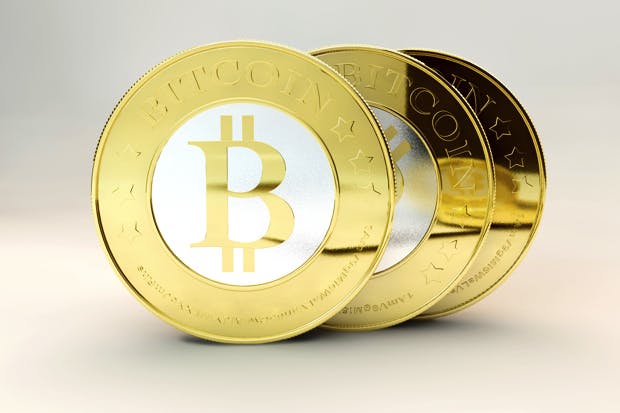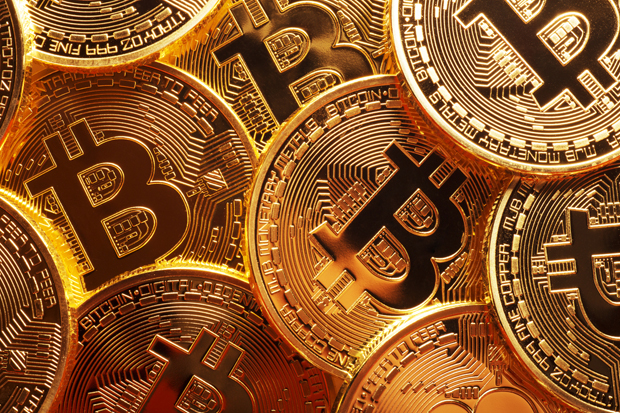Here’s a thought to kindle a lovely warm glow of smugness and schadenfreude as we enter a new year: you didn’t lose your fortune in the great bitcoin bubble of 2013.
The reason I know you didn’t is because few Speccie-reading types of my acquaintance even understand what a bitcoin is, let alone how you might go about buying one, or why it might be important for the future of everything. So let me try to explain from the perspective of a fellow Luddite and techno-phobe.
You think about bitcoin, if at all, as one of those newfangled things that young people and child pornographers and hackers and other unsavoury types indulge in. It’s good for a blackly funny story — like the one about the Welshman who lost £4 million worth of bitcoin on his computer hard drive in a rubbish tip. But it’s not something you need to get involved with emotionally, let alone physically, because you don’t need to buy your drugs from the Silk Road, when there’s perfectly decent claret to be had online legally from Berry Bros. and Rudd.
Up to this point, I’d agree that your analysis is more or less right. And we haven’t even factored all the other reasons why you might want to avoid bitcoin — and its junior cryptocurrencies, such as Litecoin and Quark — like the plague. These include: the tremendous fiddle of buying the things; how pretty useless they are when you’ve acquired them; how hard they are to get rid of when the price starts plummeting; how vulnerable they are to theft by hackers; and the possibility that the authorities might suddenly clamp down on cryptocurrencies, as they have in China.
It’s the last one, for me, that represents the biggest long-term risk. That’s because, as Max Keiser puts it, bitcoin is the ‘currency of the resistance’. To put it in Star Wars terms, dollars, pounds, euros, renminbi and other ‘fiat currencies’ are what Darth Vader and co use on the Death Star and throughout their evil empire. But when Luke Skywalker and Han Solo and Princess Leia want to purchase more X-wing fighters or buy a round in the cantina, they pay in cryptocurrencies outside the enemy’s control.
Max Keiser, by the way, is that weird, brassy American in red braces — a bit like the Penguin from the 1960s Batman series — who was on Have I Got News For You a few weeks ago. He presents an increasingly popular TV show for Russia Today called Keiser Report, in which he talks darkly and conspiratorially about banksters and gold price manipulation and the imminent collapse of the corrupt global financial system. Probably that puts you off as much as that Star Wars analogy did. But the scary thing you need to ask yourself at this point is: what if Max Keiser is right?
Here are some questions to help you on your way. 1. Do you believe that a Chancellor who, despite talk of austerity, is still borrowing £100 billion a year is in any way serious about cutting Britain’s epic national debt? 2. And suppose Miliband and Balls were to get in in 2015, do you think this would usher in a new golden era of fiscal responsibility? 3. Either way, what do you think is going to happen to the economy, house prices, public services, law and order etc when interest rates resume their natural level? 4. Looking around the world, do you see any evidence anywhere that speech is getting freer, economies are becoming less constrained, taxed and regulated, markets less blatantly rigged and manipulated, the banker/corporatist/lawyer class less bloated and cushioned, fiat currencies less inflated, resources more sensibly allocated?
You don’t need to be a particularly virulent pessimist to notice something phoney about this glorious economic recovery we’re supposedly experiencing. All you need to understand is that since the 2008 crash, nothing has been done to address the terrifying underlying problem that got us there: governments — our government especially, since we are one of the most indebted in the western world — are spending far too much money we haven’t got on crap (from overgenerous welfare to HS2) we can’t afford. This can only end very, very nastily.
So what possible recourse do we free (ish) individuals have against the bullying might of this vast, increasingly confiscatory system stacked against us? Well this is where bitcoins, Litecoins and Quarks et al come in. They’re the monetary equivalent of that scene in Atlas Shrugged where the productive, hardworking creators revolt against the corrupt, hyper-regulated, sclerotic, wasteful, doomed system and retreat beyond the mountains to Colorado.
Cryptocurrencies were created by and for people who have simply had enough. They’ve seen the way the world is going and rather than grumble or pretend it’s not happening, they’ve decided instead to make a new one, in their own liberty-loving image. It’s a world where, by and large, Big Brother has no place — which is why, for example, it’s so popular on the black market.
But you don’t need to be a crim to see why cryptocurrencies make sense. Have you noticed how increasingly difficult it is, for example, to conduct the most basic transactions from your bank account? You want to pay for some item, perhaps by bank transfer, and the security’s so tight (thanks to onion layers of EU regulation, probably) you sometimes find yourself being shut out of your own account. Well, with bitcoin you’re your own bank: you transfer your money electronically from your wallet to the payee’s wallet, and that’s it.
Oh, and another thing. And this may be the clincher: the number of retail outlets which accept bitcoin is exploding, with thousands more each week. For example, already there’s a delightful agriturismo farmhouse in Tuscany, a place by a lake in Portugal, an apartment in Dubrovnik. Paying for these in BTC is like spending Monopoly money, like you’re getting your pleasures free.
Got something to add? Join the discussion and comment below.
Get 10 issues for just $10
Subscribe to The Spectator Australia today for the next 10 magazine issues, plus full online access, for just $10.















Comments
Don't miss out
Join the conversation with other Spectator Australia readers. Subscribe to leave a comment.
SUBSCRIBEAlready a subscriber? Log in